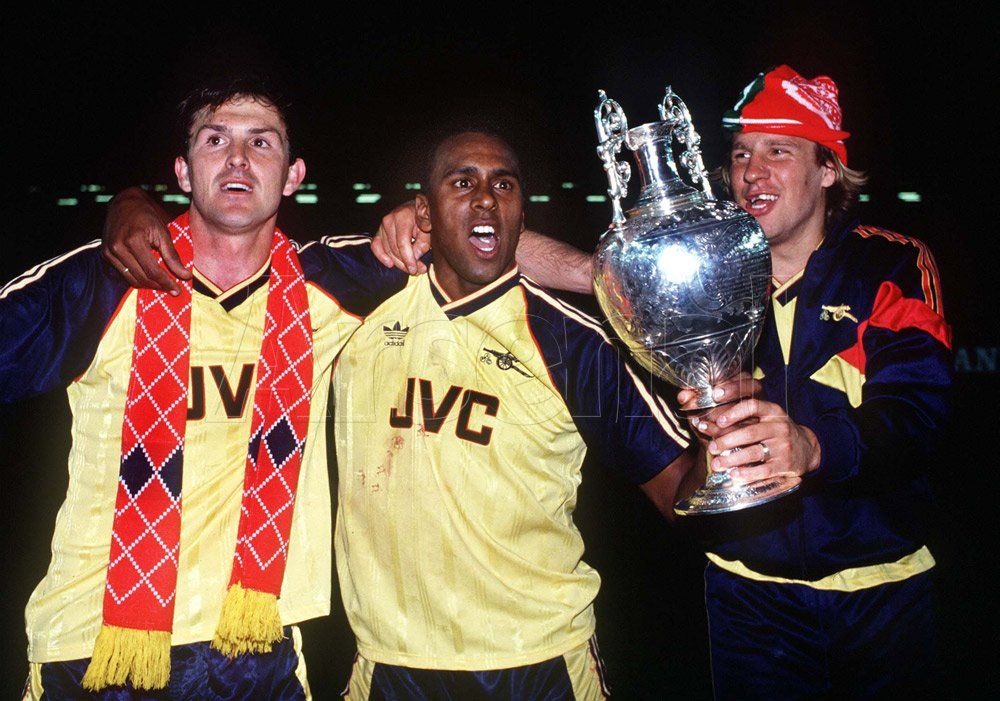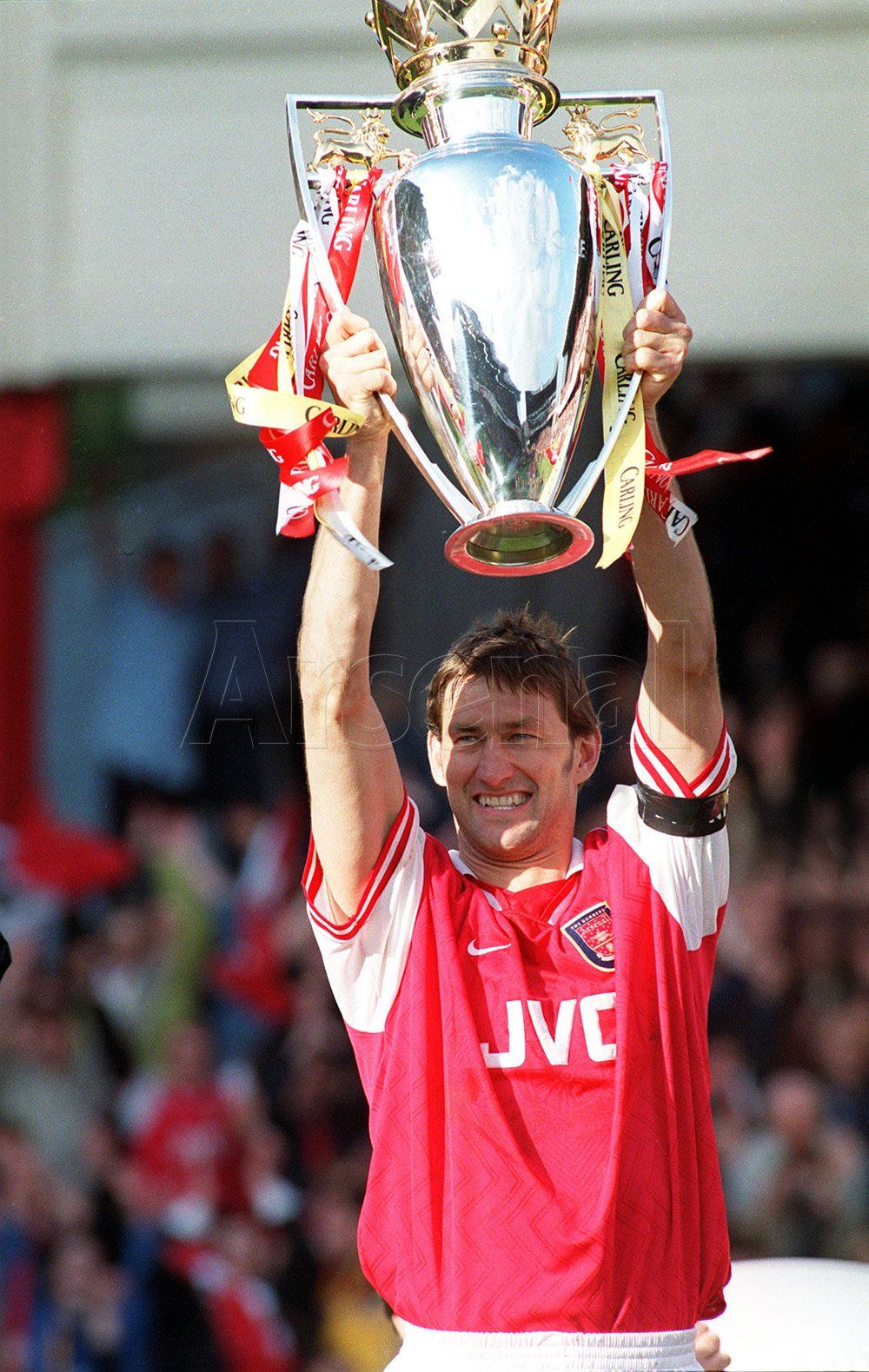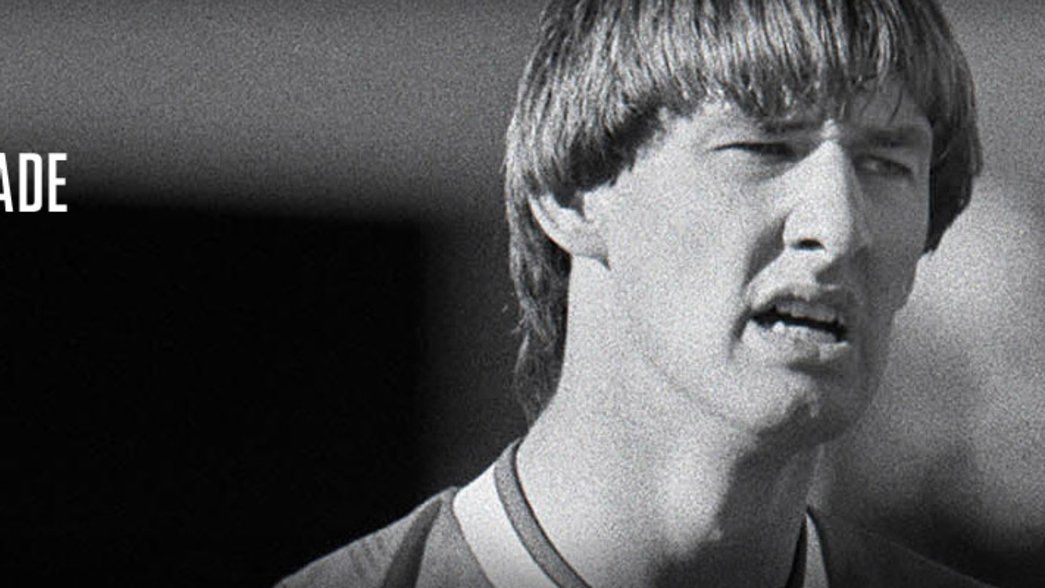While one Arsenal academy graduate, Ashley Cole, recently became only the seventh player in history to earn 100 caps for England another, Jack Wilshere, is feted as the future of both the Gunners and the Three Lions.
Numerous world-class players have progressed through the Arsenal ranks. Jon Spurling selects 20 notable youth team graduates.
Liam Brady
1973-80
Games: 307
Goals: 59
After arriving in May 1971 from junior football in Dublin, midfielder Liam Brady’s stellar performances in the reserves quickly had senior professionals including Frank McLintock and George Armstrong purring, and after making his first-team debut in 1973, the Irishman’s displays alongside Graham Rix simply made him the finest midfielder in the country.
The 1979 FA Cup Final saw him win his sole Arsenal honour, and it was fitting that Brady played such a key role that afternoon.
His move to Juventus in May 1980, aged just 24, provoked anguish among the Arsenal faithful, but Brady later returned to Arsenal in his role as academy director.

Paul Merson
1986-97
Games: 425
Goals: 99
Striker Paul Merson may have been a “scorer of great goals” rather than a “great scorer of goals”, but his 10-year Arsenal first-team career saw him notch up an impressive 99 goals anyway.
The Harlesden-born front man, who joined the club as a 14 year-old, was at his best when dovetailing with Alan Smith during the 1989 and 1991 title-winning campaigns, and then latterly under Arsene Wenger when, after he sought treatment for alcohol and drug addiction, he rediscovered his best form in the 1996/97 campaign.
Paul Davis
1980-94
Games: 447
Goals: 37
The first in a new wave of young homegrown Arsenal stars in the early 80s, which also included Chris Whyte and Raphael Meade, midfielder Paul Davis initially struggled to impose himself upon games, and the inevitable comparisons with the departed Liam Brady weighed heavily upon him.
But by the time George Graham arrived as manager in 1986, Davis was already blossoming into a cultured playmaker, whose lugubrious style, and unerring ability to create space, made him a Highbury favourite.
A title winner in both 1989 and 1991, Davis’s role in the 1994 Cup Winners' Cup campaign was pivotal. “I loved the cat and mouse feel to European ties,” he admitted.
Frank Stapleton
1975-81
Games: 300
Goals: 108
As the great John Radford’s career reached its end, the emergence of Frank Stapleton eased the headache of replacing “Raddy” for the Arsenal board.
Breaking through in the 1975/76 campaign, Stapleton initially played second fiddle to the swashbuckling Malcolm Macdonald, before sharing the load with Alan Sunderland.
A clever finisher and bullet header of the ball, the Republic of Ireland international left for Manchester United for £900,000 in 1981, worsening Arsenal fans’ moods further in the wake of Brady’s departure a year earlier.

Georgie Armstrong with Pat Rice
George Armstrong
1962-77
Games: 621
Goals: 68
Recruited as an amateur in 1961, George Armstrong broke into the Arsenal side as a marauding right winger remarkably quickly, and experienced the frustration of underachieving in the 1960s, before hitting the heights with Bertie Mee’s side in the early 1970s.
Famed for his incredible fitness levels, “Geordie” was the engine of the Double side, driving his side forward, and remaining a first-team regular well into his 30s, until 1977.
He later returned as coach at Highbury, where he worked under both Graham and Wenger.
Ray Parlour
1992-2004
Games: 466
Goals: 32
Initially in and out of the team, Ray Parlour became a fixture in the first team by the late-90s, and was a key component of the 1998 Double-winning side.
Freely admitting that he lacked the panache of the team’s French and Dutch cohorts, the “Romford Pele” more than made up for that with tenacity and a dogged determination.
The 2003/04 ‘Invincibles’ campaign proved to be his last at Highbury but, when skipper Patrick Vieira sustained an injury, Parlour proved an excellent replacement in this glorious season for the Gunners.
Martin Keown
1985-2004
Games: 449
Goals: 8
Initially, Martin Keown looked set to become “the one that got away”.
When the pacy centre back burst onto the scene in the winter of 1985, he seemed destined to become David O’Leary’s partner for seasons to come, before a fall-out with new boss George Graham saw him sold to Aston Villa for a relative pittance.
Six years later, Graham bought him back for £2 million from Everton and, after a shaky few seasons, Keown mutated into a nippy, skilled ball winner, whose distribution improved year on year.
His often rabid displays may not have made him friends, especially at Old Trafford, but his contribution to Arsenal’s success can never be under-estimated.

Tony Adams
1983-2002
Games: 669
Goals: 48
Arsenal may not have been over-achieving on the pitch but, by 1983, it was clear that the youth team was about to bear fruit.
The most dominant of the bunch was central defender Tony Adams, who was rapidly being fast-tracked towards the first team. In a career spanning 19 years, the skipper, who marshalled the meanest of defences, embodied the fighting spirit of George Graham’s Arsenal in the late 80s and early 90s, before enjoying a cultural renaissance under Arsene Wenger.
Two things remained constant, though: his dogged loyalty to the cause and his unerring ability to lift silverware under both managers.
Arthur Milton
1951-55
Games: 84
Goals: 21
Signed as a 15 year-old amateur in April 1945, Arthur Milton went on to win the title with the Gunners in 1953, garnering plaudits for his fine displays, while never quite becoming a regular in the first team.
Although he won an England cap in 1952, Milton was a marvellously talented all-rounder, playing cricket for Gloucestershire between 1948 and 1974, and appearing in six Test matches for England. Milton left the Gunners for Bristol City in 1955.
David Rocastle
1985-92
Games: 277
Goals: 34
Lewisham-born David Rocastle made his debut in an uninspiring Highbury draw with Newcastle in 1985, and his probing, twisting runs from midfield were unquestionably the bright spot of a dull afternoon.
“Rocky” quickly became a crowd favourite alongside Davis and Thomas and cemented his place in the club’s hall of fame with his dramatic winner against Tottenham in the 1987 Littlewoods Cup semi-final.
Present and correct for the title-winning seasons under Graham, the tears he shed when his move to Leeds was confirmed in 1992 proved that Arsenal was well and truly in Rocky’s blood.
Michael Thomas
1987-91
Games: 208
Goals: 30
Given that his history-making goal against Liverpool at Anfield in 1989 came after a characteristic tanking run from midfield, it’s easy to forget that Michael Thomas, who joined Arsenal as a schoolboy in 1982, initially played as a full back under George Graham.
Converted into a central midfielder, Thomas flourished briefly, but his fortunes wavered after that night at Anfield and, jarringly, he was appearing in a Liverpool shirt by December 1991.
His career never hit the heights of that May night again - although that was always going to be a nigh-on impossible task.
Tom Whittaker
1920-25
Games: 70
Goals: 2
Having signed for the Gunners straight from Army football aged 21, Tom Whittaker’s Arsenal career was cut agonisingly short due to a knee injury after 70 appearances for the club.
Always fascinated by coaching techniques, he became Arsenal’s chief trainer in 1926 and assistant manager in 1946. Whittaker was elevated to the manager’s position in 1947 after George Allison retired.
When he died “in office” in 1956, this most loyal of servants had given 37 years of his life to the Club.

Sammy Nelson
Sammy Nelson
1969-81
Games: 339
Goals: 12
It took a few years for Sammy Nelson to dislodge Bob McNab from the left back slot at Arsenal but, after the Northern Ireland defender made the berth his own in 1975, he settled into it effortlessly.
With formidable energy, a pinpoint shot and his repartee with the Arsenal fans, Nelson quickly became a Highbury cult hero and played a key role in the 1979 FA Cup Final win, before departing to Brighton in 1980 following the arrival of Kenny Sansom.
David O'Leary
1975-93
Games: 722
Goals: 14
Signed as a 15 year-old from Shelbourne Juniors, David O’Leary was pitched into the Arsenal side in 1975 with the team at the lowest of ebbs.
Under manager Terry Neill, and alongside new central defensive partner Willie Young, “Spider” became the most accomplished of performers, and went on to become Arsenal’s record appearance holder in an 18-year Gunners career.
Initially, it seemed that in the wake of Liam Brady and Frank Stapleton’s departures in the early 80s, the Republic of Ireland star might also find pastures new. But he stayed, and was rewarded with titles in both 1989 and 1991, proving that the best things really do come to those who wait.
Ashley Cole
1999-2006
Games: 228
Goals: 9
His controversial, big-money move to Chelsea in 2006 has inevitably overshadowed Ashley Cole’s achievements at Highbury but, for six years, the consistent left back was a key component of Arsenal’s defence.
His dynamic runs and connection with Robert Pires were often catalysts for Gunners attacks, which so often ended in Arsenal scoring.
A title winner in both 2002 and 2004, Cole also popped up with occasional goals, none more crucial than the last-ditch winner in 2003 against Dynamo Kiev that rescued Arsenal’s Champions League campaign.
Jon Sammels
1963-71
Games: 270
Goals: 52
“I’d walk a million miles for one of your goals, Jon Sammels,” sang Arsenal fans in the late 1960s, and goalkeeper Bob Wilson believed that Sammels was “the thinking man’s midfielder” in the Arsenal team.
Yet despite playing a key role in the Gunners’ Fairs Cup win in 1970, Arsenal fans grew impatient with Sammels’ languid approach, and a sizeable minority made their feelings audible, which diminished his confidence. By the time his team-mates won the 1970/71 Double, Sammels had been reduced to a bit-part player, who would soon depart for Leicester, where he rejuvenated his career.
Charlie George
1969-75
Games: 179
Goals: 49
The original “King of Highbury,” Charlie George was destined to be an Arsenal superstar from the minute he arrived at the club as a cocky apprentice in May 1966.
A hero on the Highbury terraces, his coruscating drive past Liverpool’s Ray Clemence and subsequent “Jesus Christ Superstar” celebration after his goal in the 1971 FA Cup Final assured his place in Arsenal folklore.
Subsequent injuries and well publicised fall-outs with manager Bertie Mee meant that May 1971 was as good as it got for Charlie at Arsenal but, as he proved at Derby under Dave Mackay, on his day Charlie remained the classiest of acts.

Jack Wilshere
Jack Wilshere
2008 -
Games: 91
Goals: 5
Jack Wilshere is the latest in a distinguished line of homegrown talent to don an Arsenal shirt, and time will tell whether he will join the pantheon of Arsenal legends alongside fellow youth team products such as Adams and Brady.
His surging midfield runs, obvious passion for the Club and ability to pick out colleagues with pinpoint passes make him a clear candidate for greatness.
If he can overcome the injury setbacks that have affected his progress, there’s no reason why Wilshere and Arsenal cannot achieve much in seasons to come.
Peter Storey
1965-77
Games: 501
Goals: 17
Initially a tough-tackling right back under new boss Bertie Mee, Peter Storey’s conversion to a central midfielder brought him notoriety as an enforcer in the same mould as “Chopper Harris” at Chelsea and Johnny Giles at Leeds.
Nicknamed “Cold Eyes”, Storey protected Arsenal’s back four with his life throughout the 1970/71 Double campaign, intimidated opponents into submission and single-handedly turned the 1971 FA Cup semi-final on its head with two second-half strikes against Stoke City.
Pat Rice
1967-80
Games: 528
Goals: 13
After arriving as an apprentice in 1964, Northern Ireland full back Pat Rice freely admitted that he had to work his socks off to ensure that he got into he first team.
What he lacked in natural skill, he more than made up for in graft, enthusiasm and loyalty to the cause.
Rice won the Double in 1971 and, as skipper, lifted the FA Cup after the dramatic victory against Manchester United in 1979.
After a spell at Watford, Rice then returned to his spiritual home, where he served on the coaching staff until his retirement last year.
Copyright 2025 The Arsenal Football Club Limited. Permission to use quotations from this article is granted subject to appropriate credit being given to www.arsenal.com as the source.




